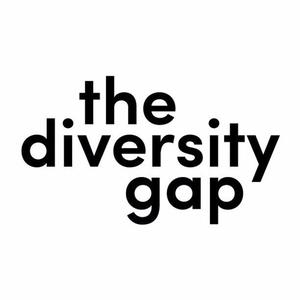
The Diversity Gap
Bethaney Wilkinson
When it comes to diversity, good intentions are only the beginning. Join Bethaney Wilkinson as she explores the gap between good intentions and good impact as it relates to diversity, inclusion and equity. On The Diversity Gap podcast, we'll be learning from thought leaders, authors, creatives and more about the diversity gaps in society and culture. Our goal is to discover promising practices for closing diversity gaps in our everyday lives and work!
- 49 minutes 29 seconds11: When the Soul Grows Restless with Matt Reynolds
Listening to our soul in all seasons, but especially those of restlessness, is hard, but rewarding work. In today’s episode, you get to hear Matt’s story of listening to the restlessness of his soul and pursuing a richer life through vulnerability.
Matt and I discuss:
playing in community
navigating transitions in our identity
listening for restlessness of our souls
importance for vulnerability
the need for community
Episode Notes:
For the episode transcript, click here.
Learn More About Stoke: https://www.stokethefire.live/about
Learn More About the January 2024 Stoke Retreat: https://www.stokethefire.live/events
A More Beautiful Way is an exploration of what it takes to slow down, create sacred space, and bring healing hearts, minds & bodies to the work of social change.
To learn more and read along, go to https://www.amorebeautifulway.co/.
To keep up with us, you can follow us on Instagram: @amorebeautifulway – https://www.instagram.com/amorebeautifulway/
---
Send in a voice message: https://podcasters.spotify.com/pod/show/bethaney-wilkinson/message
Get full access to A More Beautiful Way at www.amorebeautifulway.co/subscribe14 December 2023, 11:00 am - 41 minutes10: Learning How to Tell Ourselves the Truth with Danielle Lyles Barton
Learning how to tell the truth about who we are is among the bravest and most challenging work we do. It is also essential for our growth and flourishing. In today’s podcast, you get to hear Danielle’s story of shedding old identities and stepping more fully into her sacred work and identity.
Danielle and I discuss:
shedding layers of conditioning and expectations
choosing to not become a biological mother
the liberating power of Black storytelling
making space for our healing and evolution
listening to and learning from our inner children
heartache’s ability to water the seeds of our growth
the nuances of intergenerational healing
Episode Notes:
For the episode transcript, click here.
Learn more about Danielle here: https://bloomingallover.co/
The link to learn more about the retreat and receive The Re:naissance Within Reflection Guide:
https://bloomingallover.myflodesk.com/renaissancereflectionguide
A More Beautiful Way is an exploration of what it takes to slow down, create sacred space, and bring healing hearts, minds & bodies to the work of social change.
To learn more and read along, go to https://www.amorebeautifulway.co/.
To keep up with us, you can follow us on Instagram: @amorebeautifulway – https://www.instagram.com/amorebeautifulway/
---
Send in a voice message: https://podcasters.spotify.com/pod/show/bethaney-wilkinson/message
Get full access to A More Beautiful Way at www.amorebeautifulway.co/subscribe16 November 2023, 11:00 am - 49 minutes 32 seconds09: Embodiment as a Healing Pathway with Dr. Cherini Ghobrial
What does it look like to be connected to our minds and our bodies in today’s society?
This A More Beautiful Way Conversation with Dr. Cherini Ghobrial is a thought provoking reflection on what it looks like to feel your feelings, come home to your body and live embodied.
Cherini and I discuss:
being conditioned to be a high achiever
chronic pain and fatigue
living in the present, moment by moment
coming home to yourself and somatic therapy
feeling your feelings and coming back into your body
countercultural living focused on healing and liberation
the rapture of being alive and aliveness as a human right
Learn more about Dr. Cherini Ghobrial - Cherini’s website
Episode Notes:
For the episode transcript, click here.
A More Beautiful Way is an exploration of what it takes to slow down, create sacred space, and bring healing hearts, minds & bodies to the work of social change.
To learn more and read along, go to https://www.amorebeautifulway.co/.
To keep up with us, you can follow us on Instagram: @amorebeautifulway – https://www.instagram.com/amorebeautifulway/
---
Send in a voice message: https://podcasters.spotify.com/pod/show/bethaney-wilkinson/message
Get full access to A More Beautiful Way at www.amorebeautifulway.co/subscribe2 November 2023, 10:00 am - 38 minutes 56 seconds08: Living Resistance with Author + Poet Kaitlin Curtice
What does it look like to hold the nuances of resistance, decolonization, storytelling, and everyday flourishing in today’s world?
This A More Beautiful Way Conversation with Kaitlin Curtice is a thoughtful, shared reflection on what it looks like to slow down, to tend to our wounds, to build connection through storytelling and to continue on the journey of healing and decolonization.
Kaitlin and I discuss:
- the daily habits that ground the morning and orient our days
- the need for grief and ritual as we move through life’s endings
- how the wisdom of children is vital in our creation of a more beautiful future and world
- the meaning of decolonization, both personally and collectively
- the complexity of indigeneity and the importance of learning from indigenous peoples around the world
- rooting in gratitude as a spiritual practice
- writing and creativity as a pathway home
This conversation is delightful and my hope is that you find nourishment for your inner and outer journey through listening.
About Kaitlin
Kaitlin Curtice is an award-winning author, poet-storyteller, and public speaker. As an enrolled citizen of the Potawatomi nation, Kaitlin writes on the intersections of spirituality and identity and how that shifts throughout our lives. She also speaks on these topics to diverse audiences who are interested in truth-telling and healing.
As an inter-spiritual advocate, Kaitlin participates in conversations on topics such as colonialism in faith communities, and she has spoken at many conferences on the importance of inter-faith relationships.
Her new book, Living Resistance: An Indigenous Vision for Seeking Wholeness Every Day, examines the journey of resisting the status quo of hate by caring for ourselves, one another, and Mother Earth.
Besides her books, Kaitlin has written online for Sojourners, Religion News Service, Apartment Therapy, On Being, SELF Magazine, Oprah Daily, and more. Her work has been featured on CBS and in USA Today. She also writes at The Liminality Journal. Kaitlin lives in Philadelphia with her family.
Subscribe to Kaitlin’s Substack - The Liminality Journal
Learn more about Kaitlin’s Work - Kaitlin’s Website
Buy Kaitlin’s Newest Book - Living Resistance: An Indigenous Vision for Seeking Wholeness Everyday
For the episode transcript, click here.
A More Beautiful Way is an exploration of what it takes to slow down, create sacred space, and bring healing hearts, minds & bodies to the work of social change.
To learn more and read along, go to https://www.amorebeautifulway.co/.
To keep up with us, you can follow us on Instagram: @amorebeautifulway – https://www.instagram.com/amorebeautifulway/
---
Send in a voice message: https://podcasters.spotify.com/pod/show/bethaney-wilkinson/message
Get full access to A More Beautiful Way at www.amorebeautifulway.co/subscribe19 October 2023, 10:00 am - 46 minutes 58 seconds07: Rewilding Your Life with Hillarie Maddox of Black Girl Country Living
In this A More Beautiful Way Conversation, Hillarie Maddox and I have a warm, inviting dialogue on what it looks like to rewild our lives and create slower, more connected lives.
Hillarie and I discuss:
identity and self discovery
landscape, culture and sustainability in South Dakota
homesteading
land and healing for black women
race, land ownership, and connection to the land
rewilding and slowing down our lives
Connect with Hillarie:
Apply for Rewilding Coaching w/ Hillarie: https://rewildingcoaching.lpages.co/fall2024/
Read Black Girl Country Living: https://bgcl.substack.com
Follow Hillarie on Instagram: @blackgirl.countryliving
Episode Notes:
For the episode transcript, click here.
A More Beautiful Way is an exploration of what it takes to slow down, create sacred space, and bring healing hearts, minds & bodies to the work of social change.
To learn more and read along, go to https://www.amorebeautifulway.co/.
To keep up with us, you can follow us on Instagram: @amorebeautifulway – https://www.instagram.com/amorebeautifulway/
---
Send in a voice message: https://podcasters.spotify.com/pod/show/bethaney-wilkinson/message
Get full access to A More Beautiful Way at www.amorebeautifulway.co/subscribe5 October 2023, 10:00 am - 52 minutes 57 seconds06. The Art of Self-Cultivation with Nina Simons of the Bioneers
If you're hoping to linger with the bigger questions of personal and collective healing, this conversation is for you.
Host, Bethaney Wilkinson, interviews Nina Simons about the role self-cultivation and personal healing plays in the work of addressing the many crises we're facing as a species.
Nina Simons is co-founder of Bioneers and serves as its Chief Relationship Strategist. She is a social entrepreneur who is passionate about the power of women to transform the world, reaching racial and gender justice, indigeneity and rekindling a sacred relationship to nature, while co-creating a just transition that’s regenerative, loving and peaceful.
She speaks internationally and co-facilitates transformative leadership offerings that integrate Relational Mindfulness, Restoring the Deep Feminine and The Work That Reconnects.
Nina co-edited Moonrise: The Power of Women Leading from the Heart, and recently wrote the award-winning book Nature, Culture & the Sacred: A Woman Listens for Leadership. She was named a recipient of the Goi Peace Award in recognition of her pioneering work through Bioneers to promote nature-inspired innovations for restoring (reciprocal relationships among) the Earth and our human community.
You can access our conversation transcript here.
Learn more about A More Beautiful Way at www.amorebeautifulway.co
---
Send in a voice message: https://podcasters.spotify.com/pod/show/bethaney-wilkinson/message
Get full access to A More Beautiful Way at www.amorebeautifulway.co/subscribe21 September 2023, 4:40 am - 43 minutes 25 seconds05: Race, Lineage & the Power of Forgiveness w/ Lisa Sharon Harper from Freedom Road
What might it look like to find a more beautiful way to navigate the racial harm and disconnection of our time? What might it look like to find the healing pathways within our own family lineages and in the places we come from? What roles do repair and forgiveness play in cultivating a new world?
In today's conversation, we are joined by author, activist and storyteller Lisa Sharon Harper. Through the lens of her most recent book, "Fortune: How Race Broke My Family and the World and How to Repair It All," Lisa walks through how learning our family histories, and setting those histories within the context of the broader history of one's nation, opens up healing pathways to repair the harms of racial hierarchy in our world.
ABOUT LISA
Lisa Sharon Harper (LSMA, Columbia University; MFA, University of Southern California) is the founder of Freedom Road, a consulting group dedicated to shrinking the narrative gap. A sought-after speaker, trainer, and consultant with more than 100,000 social media followers, Harper has written several books, including the critically acclaimed The Very Good Gospel: How Everything Wrong Can Be Made Right.
Her work has been featured in the New Yorker, Relevant, Essence, HuffPost, The National Civic Review, and CNN, and she has appeared on PBS's Religion & Ethics NewsWeekly, TV One, Fox News, NPR, and Al Jazeera America. Harper previously served as chief church engagement officer at Sojourners, where she mobilized the church to engage campaigns on immigration reform and racial justice.
She has researched her family origins for three decades and presented on her ancestors achievements at the African American Civil War Museum. Harper lives in the same Philadelphia neighborhood where three generations of her ancestors lived.
LINKS:
Learn more about Freedom Road.
Learn more about Lisa Sharon Harper.
Learn more about A More Beautiful Way.
---
Send in a voice message: https://podcasters.spotify.com/pod/show/bethaney-wilkinson/message
Get full access to A More Beautiful Way at www.amorebeautifulway.co/subscribe7 September 2023, 12:39 pm - 11 minutes 28 seconds04: Community Voice feat. Jordyn Robinson on Grief, Community & Learning to Ask for Help
In today’s episode of A More Beautiful Way, you get to hear from an AMBW Community Voice: Jordyn Robinson. Jordyn takes us on a journey into three powerful questions, giving voice to what it’s looking like for her to embody ~a more beautiful way~ in this season of her life.
You can learn more about A More Beautiful Way at www.amorebeautifulway.co and by following our work @amorebeautifulway.
---
Send in a voice message: https://podcasters.spotify.com/pod/show/bethaney-wilkinson/message
Get full access to A More Beautiful Way at www.amorebeautifulway.co/subscribe31 August 2023, 4:30 am - 47 minutes 2 seconds03: Art is Medicine & Sending Flowers to Greenwood with Leah Palmer from The Wild Mother Creative Studio
In this soul-filling conversation, Leah and I discuss the importance of learning to be one another’s story-keepers. We talk about working with art and floral design to help a community remember and heal from the tragic Greenwood Massacre (also known as the Tulsa Race Massacre of 1921.) We reflect on how working with plants and created-things sustains us. And Leah shares a gracious invitation for us to partner with her and The Wild Mother to raise awareness about missing and murdered Indigenous women.
Leah Palmer (she/her) is an 8th generation Afro-Indigenous artist and anti-racism educator located in Oklahoma City. With her two sisters, she is a founder of The Wild Mother, a floral design studio based in the Arts District of Oklahoma city, on Kickapoo, Osage, Wichita and Comanche lands, which should be returned back to these sovereign nations. In her work as Storyteller at The Wild Mother, Leah spearheads projects that marry art and activism, while engaging with fellow artists to help them discover a unique position in a world that requires art as medicine to educate, reflect truth, and issue healing for broken communities.
She draws inspiration from Black and Brown women and femme voices, such as bell hooks, Toni Morrison, Zora Neal Hurston, Phillis Wheatley, Robin Wall Kimmerer, Louise Erdrich, Leslie Marmon Silko, and others whose wisdom and life experiences act both as guidance and a mirror. She is grateful to stand on and continue the work of her ancestors, E.W. Perry, Peter and Martha Holloway, Gladys Perry, Flordia Palmer, C.L. Stove, Sonny Hawkeye, Marthann, James and Elnora Boykin, and so many others whose lives taught her the ways of healing forwards and backwards through storytelling, truth telling, singing, advocacy, home cooking, and communal love.
Leah’s recent work includes a floral installation called SendFlowersToGreenwood, which paid homage to the 1921 Tulsa Race Massacre; she is the production manager of Juneteenth on the East (2021-present); she is a founder and educator of Lay of the Land, an antiracism workshop for creative small businesses; she is a founder and facilitator of The Conversation Workshops, an antiracism workshop that teaches how to navigate interpersonal racism; she created the main logo for the Justice for Julius campaign and remains an advocate for abolition movements. Leah received a Bachelors of Arts in English from Oklahoma Baptist University (2013) and a Master of Arts in English from Oklahoma State University (2015).
About the Wild Mother Creative Studio:
The Wild Mother Creative Studio is a studio florist owned by Afro-Indigenous sisters, Lauren Palmer and Leah Palmer, in the heart of Arts district, Downtown, OKC. Their love and honor of culture, storytelling, and their affinity for natural elements and color theory lend themselves to “Floral Stories” produced by the sisters. It’s an added bonus that they get to work alongside their younger sister, Callie, around the studio. TWM offerings include full service wedding and event floral, curbside carryout floral for large-scale events, and holiday floral offering.
Enroll in Lay of the Land, a DEI Course for Creative Entrepreneurs
https://www.thewildmother.com/workshops
Learn More and Contribute to the Send Flowers To MMIW Campaign
https://www.thewildmother.com/sendflowersto
Follow and Learn from The Conversations Workshop
https://www.conversationworkshopsok.com
Subscribe to A More Beautiful Way on Substack
https://www.amorebeautifulway.co/
Time Stamps:
0:00 Introduction
6:52 Who is Leah Palmer?
9:23 The Wild Mother Origin
16:59 Sending Flowers to Greenwood
34:16 Send Flowers To Project
Episode Notes:
For the episode transcript, click here.
---
Send in a voice message: https://podcasters.spotify.com/pod/show/bethaney-wilkinson/message
Get full access to A More Beautiful Way at www.amorebeautifulway.co/subscribe24 August 2023, 12:21 pm - 1 hour 6 minutes02. Welcome to A More Beautiful Way: New Beginnings - Part Two
In today’s episode, Bethaney Wilkinson continues her interview with Margaret Reynolds as they discuss Bethaney’s transitions within her work including how The Diversity Gap has moved into A More Beautiful Way.
Time Stamps:
0:00 Introduction
10:09 The Diversity Gap is Born
19:52 Summer 2020 and The Diversity Gap Transitions
43:06 What is A More Beautiful Way?
59:44 How to Get Involved with A More Beautiful Way
Episode Notes:
For more information and to register for the Contemplative Writing Circle and/or Seasonal Examen, click here.
For the episode transcript, click here.
A More Beautiful Way is an exploration of what it takes to slow down, create sacred space, and bring healing hearts, minds & bodies to the work of social change.
To learn more and read along, go to https://www.amorebeautifulway.co/.
To keep up with us, you can follow us on Instagram: @amorebeautifulway
---
Send in a voice message: https://podcasters.spotify.com/pod/show/bethaney-wilkinson/message
Get full access to A More Beautiful Way at www.amorebeautifulway.co/subscribe18 August 2023, 10:00 am - 57 minutes 3 seconds01. Welcome to A More Beautiful Way: New Beginnings - Part One
In today’s episode, Bethaney Wilkinson is interviewed by her dear friend, Margaret Reynolds. They discuss Bethaney’s story from childhood through college years and how these seasons impact her work.
Time stamps:
0:00 Welcome and Introduction
13:05 Family of Origin
28:04: Faith Origin
39:45 Bethaney’s College Journey and First Flight
55:35 Episode Summary
Episode Notes:
For more information and to register for the Contemplative Writing Circle and/or Seasonal Examen, click here.
For the episode transcript, click here.
A More Beautiful Way is an exploration of what it takes to slow down, create sacred space, and bring healing hearts, minds & bodies to the work of social change.
To learn more and read along, go to https://www.amorebeautifulway.co/.
To keep up with us, you can follow us on Instagram: @amorebeautifulway
---
Send in a voice message: https://podcasters.spotify.com/pod/show/bethaney-wilkinson/message
Get full access to A More Beautiful Way at www.amorebeautifulway.co/subscribe17 August 2023, 10:00 am - More Episodes? Get the App
Your feedback is valuable to us. Should you encounter any bugs, glitches, lack of functionality or other problems, please email us on [email protected] or join Moon.FM Telegram Group where you can talk directly to the dev team who are happy to answer any queries.
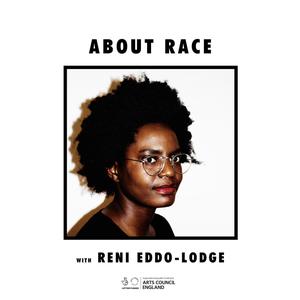 About Race with Reni Eddo-Lodge
About Race with Reni Eddo-Lodge
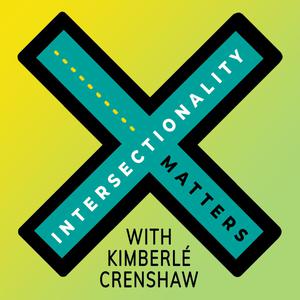 Intersectionality Matters!
Intersectionality Matters!
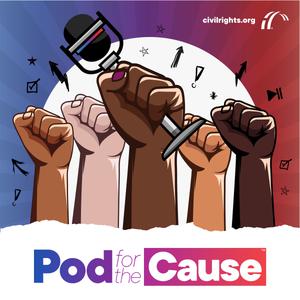 Pod for the Cause
Pod for the Cause
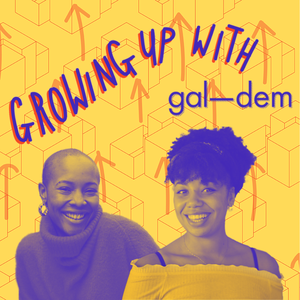 Growing up with gal-dem
Growing up with gal-dem
 What Matters
What Matters